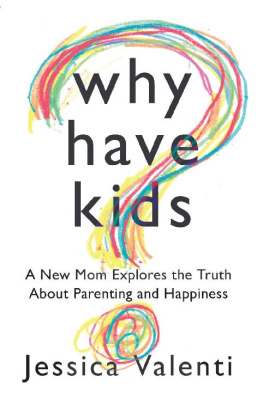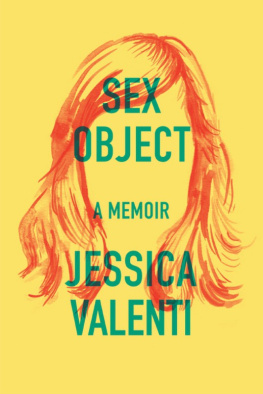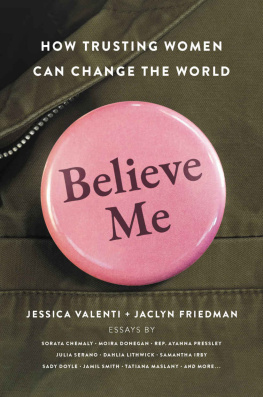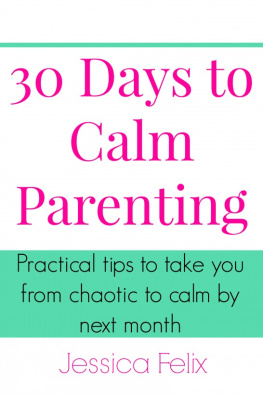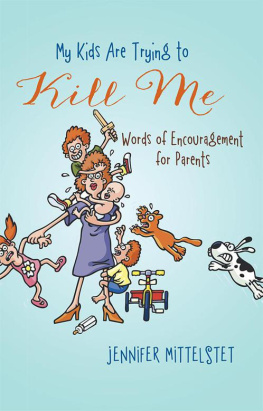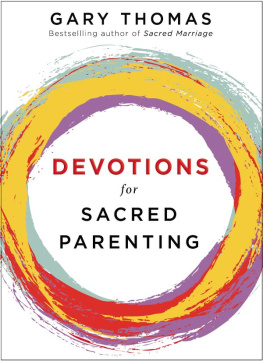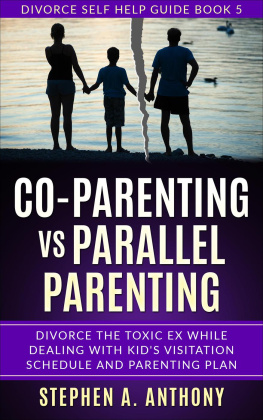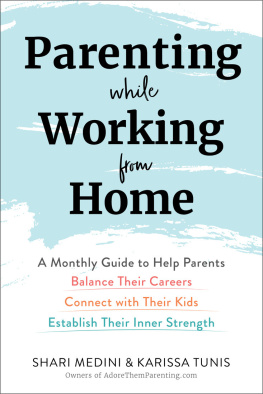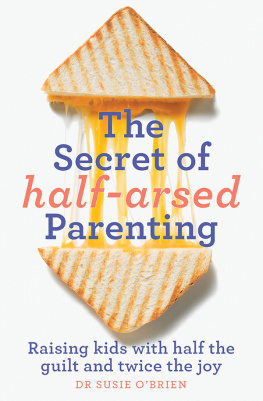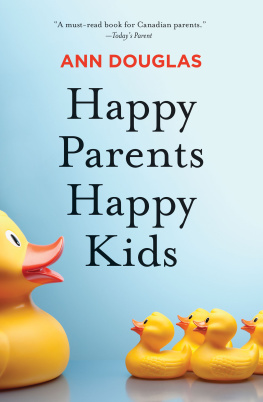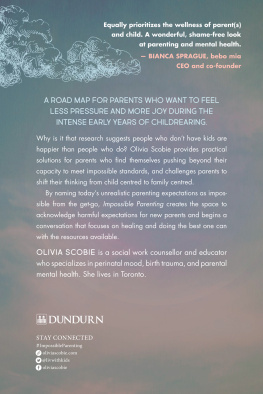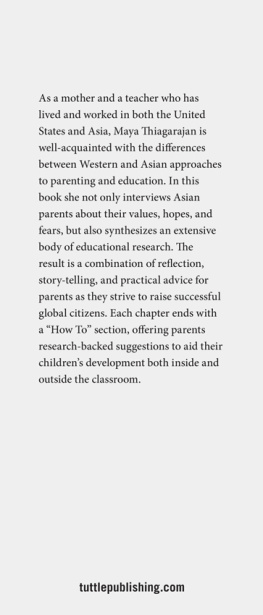
Also by Jessica Valenti
Full Frontal Feminism
Hes a Stud, Shes a Slut
The Purity Myth
Yes Means Yes

Text copyright 2012 by Jessica Valenti
All rights reserved.
No part of this book may be reproduced, or stored in a retrieval system, or transmitted in any form or by any means, electronic, mechanical, photocopying, recording, or otherwise, without express written permission of the publisher.
Published by Amazon Publishing
P.O. Box 400818
Las Vegas, NV 89140
ISBN-13: 9781477800089
ISBN-10: 1477800085
Book design by Brian Moore
For Hilda and Camila
I will never be able to fully articulate the depth of my gratitude for the love and care you have shown Layla.
I know she will carry it with her always.
Contents
Introduction
M OST PEOPLE GET flowers when they give birthI got a two-pound baby and a failing liver. Thanks to a critical bout of preeclampsia, my foray into parenthood was marked with medical urgency rather than congratulations. There were no balloons or cigars passed around, just worried glances and the hum of machines checking vital signs.
When I went in for a routine exam during my twenty-eighth week of pregnancy, I felt fine. The look on my doctors face when she took my blood pressure for the third time, however, made it clear that I was far from the healthy, glowing pregnant woman I imagined myself to be. Even after I was admitted to the hospital a mere ten minutes later, my husband and I figured it was all a fluke. After all, I didnt feel sick, and we had months to go before our daughter was due.
But within two days, my liver was in danger of failing from a second pregnancy complication called HELLP syndrome, and I was rushed in for an emergency C-section. It was twenty-four hours before I was well enough to see my daughter, Layla, and almost a week before I could touch or hold her. She spent eight weeks in the hospital, over which time she endured more medical invasiveness than most adults could bear. During that time, we held it togethermostly because we had to.
Once the immediate danger was overwhen my husband and I knew that Layla would be finethats when my real trouble began. I was incredibly grateful to have my daughter and my health, but I couldnt stop mourning the pregnancy and childbirth I thought I was going to have. I desperately wanted the entrance into parenthood that I expected, the one I had planned so carefully for.
Just two days before I was hospitalized I had been leisurely touring St. Lukes-Roosevelt Hospital wondering what kind of birth experience I wanted. I was torn between the birth centerrelaxation tubs and bragging rights on giving birth naturallyor a hospital room, where there were sweet, sweet epidurals. It never occurred to me that I wouldnt be able to choose what circumstances my daughter would be born under, and it certainly never crossed my mind that I could end up with a sick baby.
Later, I was thrown another parenting curveball when I didnt feel the sense of all-encompassing joy and love for Layla that friends and family told me would come. (One friend told me that the welling of love she had for her son felt almost like an emotional orgasm.) When a colleague asked me over lunch what new-mom emotion I found most surprising, I had to admit that it was ambivalence. Now, the frightening events surrounding Laylas birth certainly influenced how I felt about my daughterI was too afraid to feel the incredible love I had for Layla because I still feared losing herbut as the months went by, I was able to compartmentalize the post-traumatic stress and sadness I felt about how my daughter came into the world.
This feeling was something else. Something that no baby book or words of wisdom prepared me for. It wasnt unhappiness so much as an unsettling sense of dissatisfaction, an itch of emptiness that was accompanied with overwhelming shame for not feeling completed by parenthood. This was not what I expected.
NO EXPECTATIONS
Parenting needs a paradigm shift, plain and simple. The American dream of parenthoodthe ideal that were taught to seek and live outdoesnt come close to matching the reality, and that disconnect is making us miserable.
Fewer than 5 percent of American families employ a nanny. despite all of the hoopla over breast being best. What is being presented to us as the standard of parentingthrough books, magazines, and online mediais really the exception. The truth is much more thorny, and not nearly as glamorous.
Americans are desperate to figure out why, exactly, they are so dissatisfied and anxious over parenthood. They seek advice from every Tiger Mother or bebe-raiser to help with their parenting woes. But looking to other culturesor, more accurately, generalizations about other culturesis a fruitless search for a quick fix.
American parenting is too complex to lead one to believe that a brutal schedule of piano lessons or a croissant will magically erase the nuances and troubles that go along with raising children. Parental leave policies are woefully inadequateif not nonexistentat most American workplaces, and many mothers worry about losing their jobs or being forced onto the mommy track once their child is born. Parents are paying exorbitant amounts of money for child care, and feeling guilty to boot about dropping their kids off. Social expectations about what constitutes a good or a bad mother haunt every decision, and the rise of the parental advice industry ensures that moms and dads feel inadequate at every turn. Our children bring us joy (most of the time) but the parenting hurdleswhether systemic or personalare still there, unchanging.
Parents can no longer smile pretty, pretending that the guilt, expectations, pressure, and everyday difficulties of raising children dont exist or that the issues that plague so many American families can be explained away in a how-to guide.
Fifty years ago, Betty Friedan wrote the groundbreaking book The Feminine Mystique about the problem that has no namethe everyday domestic drudgery that made a generation of women miserable. Today that problem has a name (and quite often, poopy diapers). The problem isnt our children themselves; its the expectation of perfection, or, at the very least, overwhelming happiness. The seductive lie that parenting will fulfill our lives blinds Americans to the reality of having kids.
Now, theres nothing that can truly prepare people for the reality of parenthood, but most Americans dont like uncertainty. (Hence all the parenting guides, magazines, and advice gurus!) People spend so much time planning for childrentracking ovulation, undergoing IVF, picking out nursery colors, and creating birth plansthat we expect very specific outcomes.
Women expect to get pregnant relatively easily (despite scare tactic headlines warning any woman with a solitary gray hair that shes more likely to be hit by lightning than conceivelike ABCs 2010 story that warned women who want kids, The Sooner the Better: 90 Percent of Eggs Gone by Age 30); they expect to have a healthy baby, to breastfeed without complications, that their significant others will pick up half the slack, and that children will fill them with a happiness so pure that theyll be content staring at their wee faces for hours without regard for life, limb, or bathroom breaks. The expectations are too high for reality to ever measure up.
The nameless problem Friedan explored was one that resonated with many, but not all women. She was speaking to a particular group of American womenthe Betty Drapers, privileged middle-class homemakers. To those like my mother and grandmotherwho worked at factories and in barsthe oppression of homebound cookie baking sounded pretty damn sweet. Todays parenthood problem isnt so exclusive; it affects us across class, gender, and race. I suppose some people do live in that world of perfect parenting, where the worst of times are the trials and tribulations associated with finding the perfect stroller or a bottle that has the best internal-vent system to prevent milk aeration and nipple collapse. Some parents are lucky enough to have the time, energy, and money to think over what preschool will make their kid most likely to go to Harvard or what parenting style will make their child the most secure.
Next page
